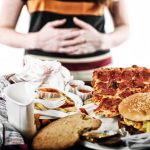Lifestyle

Everyone who has or has ever had an eating disorder shares this common sentiment: the holidays are the most difficult time of the year. There is an abundance of unhealthy, tempting food, family dinners, and plenty of holiday parties that encourage the overconsumption of food and alcohol. However, the act of simply accepting that the …
Read More

An obsession with things that are good for you is still an obsession. Orthorexia is a preoccupation or obsession with the quality of food a person eats. While eating nutritious and organic foods generally makes our bodies purr, being fixated on healthy eating can disrupt an individual’s normal daily functioning. Orthorexia is not a clinically …
Read More

Individuals who struggle with eating disorders have various personality traits that make them prone to developing dangerous eating habits, one of which is impulsivity. It is important to understand that impulsiveness is the product of a wide variety of factors, including genetics, family environment, stress and social influences. Negative Urgency Researchers have been looking into …
Read More

While not a recognized eating disorder, orthorexia plagues an increasing number of men and women each year. It occurs when a person becomes obsessed with healthy or pure eating, to the point of social isolation, malnutrition, and body dysmorphic disorder. But what’s the difference between healthy eating and orthorexia? Healthy Eating New Year’s resolutions are …
Read More

Orthorexia develops along different paths. Some people develop orthorexia to cover up anorexia, but some people develop orthorexia on its own. No matter which path it takes, orthorexia remains a dangerous eating disorder that should be taken seriously. Just like other eating disorders, orthorexia is a mental health problem and should be addressed as such. …
Read More

How many times have you heard someone, perhaps even yourself, say “I avoid eating fat”? We live in a society where people diet by limiting their consumption of particular nutrients. But how healthy is this really? And at what point could this behavior be considered disordered eating? Avoiding Fat to Avoid Getting Fat For about …
Read More

If you asked the average person about eating disorders, many people would point to young girls as the face of these deadly diseases. Despite the common misconception that eating disorders affect young women only, these diseases do not discriminate by gender or age. In fact, research tells us that eating disorders affect both women and …
Read More

My small liberal arts college claimed to be, “helping students make informed eating decisions” by posting nutrition information for each food item in our dining hall. Their claim was probably true, in part: students could see how much protein or fiber was in each food, ideally helping them put together a balanced, healthy meal. In …
Read More

We all have an internal voice inside our head that determines how we view situations and ourselves. This inner voice is what psychologists call “self talk”: conscious, as well as unconscious assumptions and beliefs. Self talk can be reasonable and rational, but it can also be negative and downright mean! Here are some ideas for …
Read More
The 2011 Youth Risk Behavior Survey found that 12.2 percent of students in the U.S. went without eating for 24 or more hours in an effort to lose weight or to keep from gaining weight. The school-based survey, conducted by the Centers for Disease Control and Prevention (CDC), also found that 5.1 percent of students …
Read More
 Eating Disorder Self Test. Take the EAT-26 self test to see if you might have eating disorder symptoms that might require professional evaluation. All answers are confidential.
Eating Disorder Self Test. Take the EAT-26 self test to see if you might have eating disorder symptoms that might require professional evaluation. All answers are confidential.
Find a Treatment Facility Near You
Click on a state below to find eating disorder treatment options that could be right for you.









 Eating Disorder Self Test. Take the EAT-26 self test to see if you might have eating disorder symptoms that might require professional evaluation. All answers are confidential.
Eating Disorder Self Test. Take the EAT-26 self test to see if you might have eating disorder symptoms that might require professional evaluation. All answers are confidential.